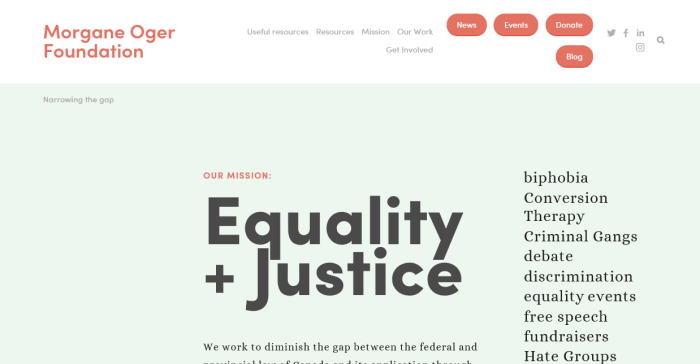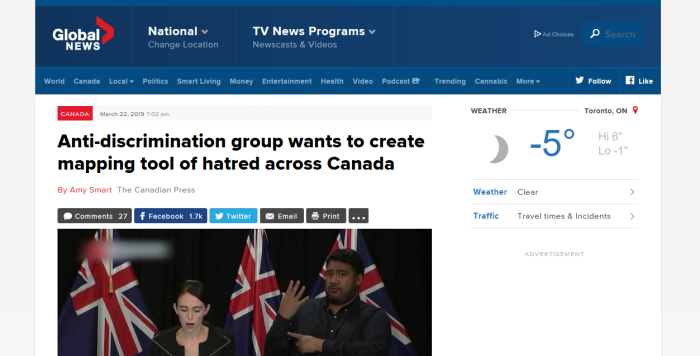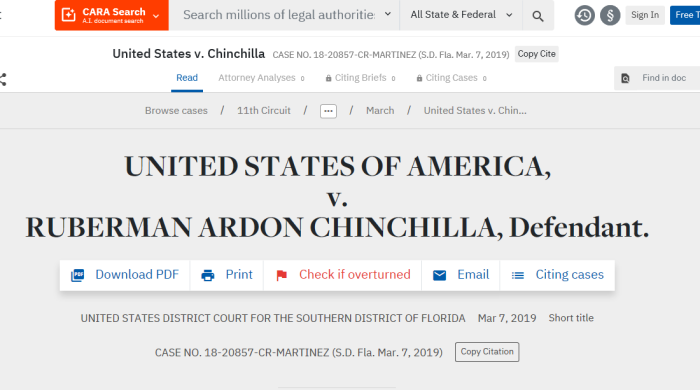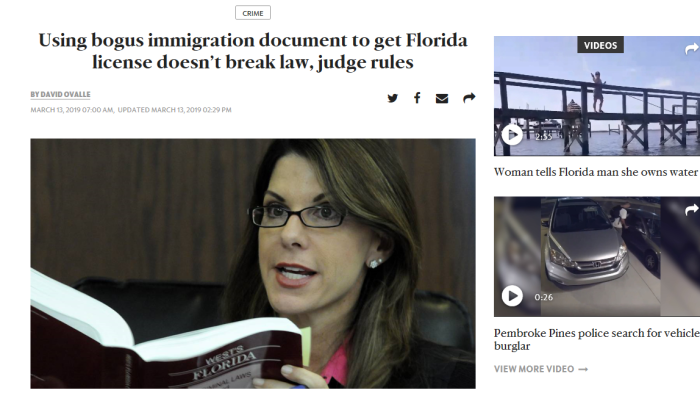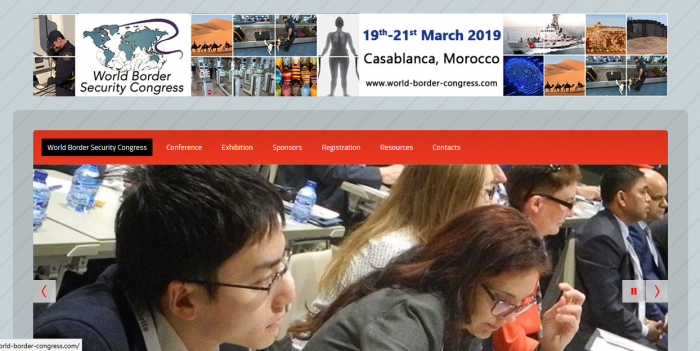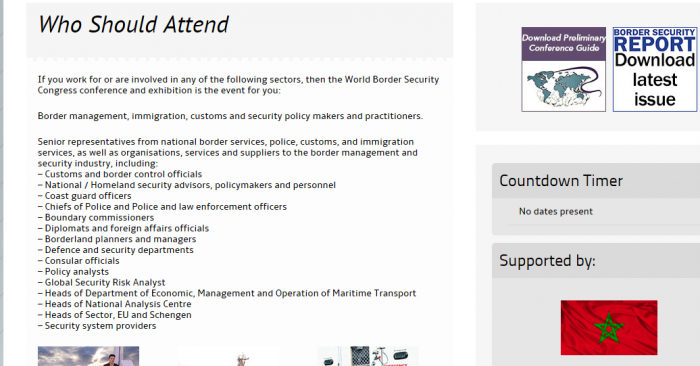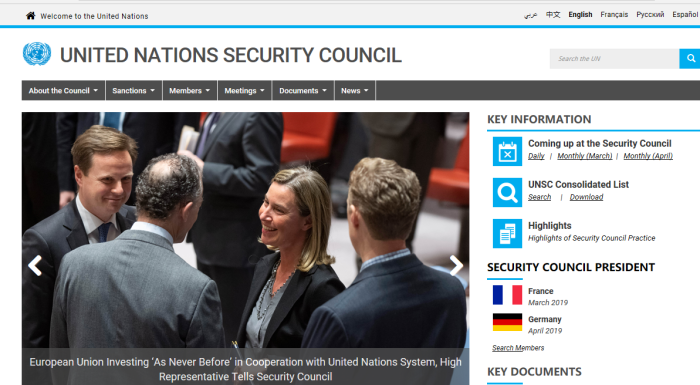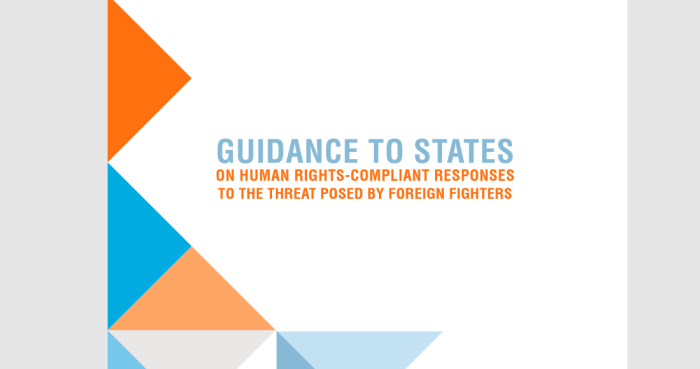
(1) https://www.un.org/sc/ctc/wp-content/uploads/2018/08/Human-Rights-Responses-to-Foreign-Fighters-web-final.pdf
(2) UNCHR Human Rights Responses to Foreign Fighters or Terrorists
(3) https://www.un.org/sc/ctc/wp-content/uploads/2016/09/FTF-Report-1-3_English.pdf
(4) https://www.osce.org/files/f/documents/4/7/393503_2.pdf
(5) OSCE Guidelines for Addressing the Foreign Terrorists Fighters
(6) https://stepstojustice.ca/steps/1-understand-grounds-detention
“Guidance to States on human rights-compliant responses to the threat posed by foreign fighters”
That title is a direct quote. The UN promotes “human rights-compliant responses” to terrorists who have left their country to take up arms against them, commit atrocities, then expect to be welcomed back.
” In June 2014, it was estimated that up to 12,000 people from more than 80 countries had travelled to Iraq and the Syrian Arab Republic to join groups such as the Al-Nusrah Front and the Islamic State in Iraq and the Levant (ISIL). In September 2015, that number was thought to have grown to almost 30,000 from more than 100 countries. By August 2017, the flow of people to Iraq and the Syrian Arab Republic had diminished dramatically in light of the military efforts against ISIL. In October 2017 it was estimated that over 40,000 people from more than 110 countries had joined ISIL, and that at least 5,600 of them had returned home.”
1/ In 2014, 12,000 people across 80 countries travelled to Iraq and Syria.
2/ In 2015, that number thought to be 30,000.
3/ In 2017, thought to be 40,000.
4/ At least 5,600 thought to have returned home.
How is this not a crisis?
“2. There is no clear profile for foreign terrorist fighters. Some are motivated by extremist ideology, while others appear more driven by alienation and boredom. Motivation may also change over time. Motivational factors may also include the desire to belong to a group or to gain peer acceptance; kinship, nationalism or patriotism; and humanitarian reasons, namely to protect the local population. Financial or material gain may also be a factor. The Global Counter-Terrorism Strategy points to prolonged unresolved conflicts, dehumanization of victims of terrorism in all its forms and manifestations, lack of the rule of law and violations of human rights, ethnic, national and religious discrimination, political exclusion, socio-economic marginalization and lack of good governance conditions among the conditions conducive to the spread of terrorism”
This seems deliberately designed to avoid the obvious: above, 12,000-40,000 people were thought to have joined ISIS. You know what motivates them? ISLAM. This UN report dances around that point, and implies that any form of unhappiness or social exclusion leads to people joining.
“3. The movement of people for the purposes of joining and supporting terrorist groups as well as their return to their countries of origin poses serious challenges to States in their efforts to prevent acts of terrorism. It is crucial that States adopt comprehensive long-term responses that deal with this threat and manage the return of fighters, and that in doing so they comply with their obligations under international human rights law. States have an obligation to protect the lives of individuals subject to their jurisdiction, and this includes the adoption of effective measures to counter the threat posed by foreign fighters. However, in its 2016 review of the Global Counter- Terrorism Strategy, the General Assembly expressed serious concern at the occurrence of violations of human rights and fundamental freedoms committed in the context of countering terrorism and stressed that, when counter-terrorism efforts neglected the rule of law and violated international law, they not only betrayed the values they sought to uphold, but they might also further fuel violent extremism that could be conducive to terrorism.”
That’s right. The UN expects host nations to “manage” the return of foreign fighters, who — to be frank — are overwhelmingly muslim. Nations have an obligation to ensure that “their” human rights are not violated in any way.
Curious to know: how does punishing them “further fuel violent extremism”? They are already violent, and anyone looking to join ISIS is a radical anyway.
“5. In resolution 2178 (2014), the Security Council underscored that respect for human rights, fundamental freedoms and the rule of law are complementary and mutually reinforcing with effective counter-terrorism measures, and are an essential part of a successful counter-terrorism effort. It noted the importance of respect for the rule of law so as to effectively prevent and combat terrorism, and that failure to comply with these and other international obligations, including under the Charter of the United Nations, is one of the factors contributing to increased radicalization and fosters a sense of impunity. The Counter-Terrorism Committee has noted the importance, as States revise legislation and policy to stem the flow of foreign terrorist fighters, to recognize that the protection of human rights and the rule of law contribute to the countering of terrorism. Arbitrary arrests, incommunicado detentions, torture and unfair trials fuel a sense of injustice and may in turn encourage terrorist recruitment, including of foreign terrorist fighters”
This is asinine. Somehow, if nations were nice and tolerant to returning terrorists, and ensured they have all the human rights they rejected…. then people won’t turn to terrorism. Perhaps there is a flow of terrorists because host countries are weak. Something to consider.
“7. In December 2017, the Security Council adopted resolution 2396 (2017), building on resolution 2178 (2014) and providing greater focus on measures to address returning and relocating foreign terrorist fighters and their families, and requiring States to strengthen their efforts in border security, information-sharing, and criminal justice. In order to protect public order and safety in the countries to which foreign terrorist fighters return or relocate, resolution 2396 (2017) sets out additional measures beyond those in resolution 2178 (2014), which may raise concerns from a human rights perspective”
Interesting. Not only do we have obligations to terrorists, but to their families as well.
” The document then analyses the gender aspects and the situation of children affected by or involved in foreign fighter activities and provides guidance on how to ensure information exchange, data collection and analysis in conformity with human rights. The document then addresses criminal justice measures, including the definition of terrorism; prosecution, fair trial and due process rights; rehabilitation and reintegration of returnees; and special laws, sunset clauses and review mechanisms. Finally, the document provides guidance on the right to an effective remedy for those whose rights have been violated and on preventing and countering violent extremism and incitement.”
Wouldn’t be the UN without a few gender references.
You read that right: rehabilitation and reintegration of returnees.
“11. Any measures undertaken to implement resolutions 2178 (2014), 2396 (2017) or other Security Council resolutions must comply with general human rights principles grounded in treaty law and customary law. This means that any measures which may limit or restrict human rights must be prescribed by law, be necessary, proportionate to the pursuance of legitimate aims and non-discriminatory. They should also be procedurally fair and offer the opportunity of legal review.“
What do you consider reasonable then? Is leaving to go join ISIS not a valid reason for the host country to fear for the safety of its citizens, should you return? As far as legal process goes: how does one investigate in a war zone across the world?
“13. In a limited set of circumstances, States may also take measures to temporarily derogate from certain international human rights law provisions. As noted by the Human Rights Committee, measures derogating from the provisions of the International Covenant on Civil and Political Rights must be of an exceptional and temporary nature. Two fundamental conditions must be met: the situation must amount to a public emergency which threatens the life of the nation; and the State party must have officially proclaimed a state of emergency. The obligation to limit any derogations to those strictly required by the exigencies of the situation reflects the principle of proportionality which is common to derogation and limitation powers.”
Okay, from your criteria: #1 is met. These fighters are a threat to the public.
As for #2, “why” must a public declaration be made?
14. The 1951 Convention relating to the Status of Refugees and its 1967 Protocol, along with regional refugee instruments,22 are the core legal instruments of the international refugee regime, complemented by customary international law and international human rights law. These instruments define the term “refugee” and establish an international framework for the protection of refugees
These people are not refugees. UN is deliberately obfuscating here. They are terrorists, who “chose” to leave their country.
“16. International humanitarian law is also known as the law of war or the law of armed conflict and is applicable to both situations of international or non-international armed conflicts. These rules are enshrined in the four Geneva Conventions and their Additional Protocols, as well as in customary rules of international humanitarian law. International humanitarian law is a set of rules which seek, for humanitarian reasons, to limit the effects of armed conflict. It protects persons, civilians, who are not or are no longer participating in the hostilities as well as fighters hors de combat and restricts the means and methods of warfare.“
This is not an official war. People can’t just leave their country, join a foreign army, then expect to return afterwards. They have committed treason. It’s idiotic to claim that humanitarian law would apply to these people.
“18. States have used different measures, whether legislative, administrative or operational, to prevent the departure of foreign fighters to conflict areas as well as to prevent their return. These could include travel bans, the seizure, retention, withdrawal and non-renewal of passports or identity cards, the stripping of citizenship, restrictions on travel or entry to territory and various types of house arrests or preventive detention. All of these measures have a serious impact on a number of fundamental human rights, including the rights to personal liberty and freedom of movement. They also raise a number of serious due process concerns if, for example, decisions are taken following secretive proceedings, in absentia or on the basis of vaguely defined criteria without adequate safeguards to prevent statelessness.“
Here’s the thing: very few people would actually care if any terrorists were left stateless as a result. If you leave to take up arms against a nation or it’s allies, you are a TRAITOR. You have forfeited your rights to be a citizen.
“21. The right to life, liberty and security of person is fundamental in international human rights law. It is the first substantive right protected by the Universal Declaration of Human Rights. Deprivation of liberty involves a more severe restriction on motion than merely interfering with freedom of movement. Examples of deprivation of liberty include arrest, imprisonment, house arrest, administrative detention and involuntary transportation, but may also include the cumulative effects of multiple restrictions on freedom of movement when, taken together, they would amount to a de facto deprivation of liberty. International human rights law protects against such deprivation of liberty, except on grounds of and in accordance with procedures established by law. But, even assuming that a deprivation of liberty is lawful, international human rights law also absolutely prohibits any deprivation of liberty that is arbitrary. The prohibition of arbitrary detention is non-derogable and must be understood to incorporate elements of “inappropriateness, injustice, lack of predictability and due process of law as well as elements of reasonableness, necessity and proportionality”. The right to life is non-derogable, and the Human Rights Committee has stated that the fundamental guarantee against arbitrary detention is also non-derogable insofar as even situations that allow for derogations in accordance with article 4 of the International Covenant on Civil and Political Rights cannot justify a deprivation of liberty that is unreasonable or unnecessary under the circumstances.”
It would be nice if the UN at some point starts listing rights and protections that society should have.
I’ll stop it here, but it goes on about ensuring that foreign fighters and terrorists have their human rights met. Ironic, since this group would never extend human rights or life to others.
Noticeably absent is any concern for the populations of these countries. Returning terrorists will pose a risk to the public, most likely for life. However, the UN talks about “managing” those risks.
Canadian Criminal Code:
Purpose and Principles of Sentencing
Marginal note:
Purpose
718 The fundamental purpose of sentencing is to protect society and to contribute, along with crime prevention initiatives, to respect for the law and the maintenance of a just, peaceful and safe society by imposing just sanctions that have one or more of the following objectives:
(a) to denounce unlawful conduct and the harm done to victims or to the community that is caused by unlawful conduct;
(b) to deter the offender and other persons from committing offences;
(c) to separate offenders from society, where necessary;
(d) to assist in rehabilitating offenders;
(e) to provide reparations for harm done to victims or to the community; and
(f) to promote a sense of responsibility in offenders, and acknowledgment of the harm done to victims or to the community.
I think that terrorism would certainly qualify under the first 3 criteria. We must (a) denounce the conduct; (b) deter the offender, and others, and (c) separate the offender from society. The other 3 are of much less concern.
Grounds to Deny Bail
The Crown considers 3 grounds of detention:
Primary – You may not go to court when required.
Secondary – You may commit another crime, or the public may not be safe while you’re out on bail.
Tertiary – Because of the circumstances of your offence, the public might feel that the justice system is not working if you’re let out of custody.
Terrorists would qualify on all 3 grounds.
Regardless, the overwhelming majority of the public does not want these people coming back. Not now, not ever.
Like this:
Like Loading...
